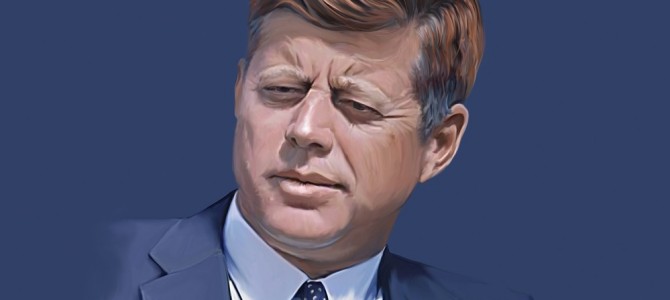
In the third Republican primary debate, Marco Rubio’s very public dismantling of Jeb Bush (“The only reason why you’re doing it now is because we’re running for the same position, and someone has convinced you that attacking me is going to help you”) regarding Rubio’s absenteeism from the Senate recalls one of the earliest—and least remembered—of presidential debates, that between Jack Kennedy and Lyndon Baines Johnson at Los Angeles’ 1960 Democratic Convention.
That earlier situation eerily echoed 2015: an older, more established leader chafing at the newfound popularity of a handsome, ambitious senator. It delivered disaster at Boulder in 2015 for the man on offense, charging headlong into a buzzsaw of charisma. It spelled similar danger at Los Angeles in 1960.
LBJ and JFK tussled, however, not in any great hall, nor upon a crowded stage, with weeks of anticipation facing a bank of moderators. It occurred only when Johnson publicly dared Kennedy to debate him one-on-one before a joint session of the Texas and Massachusetts delegations at Los Angeles’ Biltmore Hotel ballroom. JFK’s team hesitated. Joe Kennedy wanted no part of it. “But, Daddy, how can Jack say no?” JFK’s sister, Jean Kennedy Smith, asked. “The man challenged us.”
JFK dawdled. Even with the confrontation broadcast live on national television, he almost didn’t show. “If you don’t,” warned South Carolina Gov. Ernest “Fritz” Hollings, “Johnson’s really going to give it to you.”
Exhausted and Nervous
Johnson, meanwhile, was exhausted. “A Negro couple from the Ranch were in the room throughout our lunch,” the Washington Post’s Phil Graham remembered, “and the three of us converged upon him, disrobed him, pajamaed him and got him to bed.” Refreshed after a 30-minute nap, Lyndon was ready to go.
Kennedy finally acquiesced, but without any clear plan of attack. “What shall I say?” he asked Bobby Kennedy. He shook—visibly. “I remember seeing that pant-leg fluttering there, as he waited for Johnson,” recalled Time’s Hugh Sidey, “I thought he was shaking. I reported it to my office that way, but I guess it was a nervous twitch.”
The tension was palpable, between the debaters and between their seconds. “When Jake Jacobsen, a Johnson campaign aide,” remembered former Johnson staffer Blair Mooney (later an aide to Texas oil billionaire H. L. Hunt), “passed glasses of water along to the men on the platform, Robert Kennedy unsmilingly tasted the water before handing a glass on to his brother. He found it safe.”
Jack Kennedy’s Deadly Retort
LBJ’s attack was slashing, hammering JFK’s agriculture policy and his votes against flood control, boasting how he, LBJ, had answered all 50 quorum calls on that year’s civil rights bill, “but some senators” had missed as many as 34 roll calls.
Johnson had used an axe. Kennedy wielded a rapier, leaving LBJ in shreds. “I assume,” JFK replied with cool wit, “he was talking about some other candidate, not me.” With tongue firmly in cheek, he praised his opponent’s “wonderful record in answering those quorum calls.”
“So I come here today,” he concluded, “full of admiration for Senator Johnson, full of affection for him, strongly in support of him—for majority leader of the United States Senate.”
“I yield to no man in my love and affection for Johnson,” recalled his close associate Jack Valenti, “but he was handled with such skill by Kennedy who was like some great toreador handling one of the great Andalusian bulls. Kennedy just massacred him.”
“When [JFK] sat down,” Sidey observed, “his leg no longer twitched.”
“That,” admitted LBJ ally John Connally, “was our last gasp. It was the end of the road.”
John Ellis Bush now finds himself on that same road.









